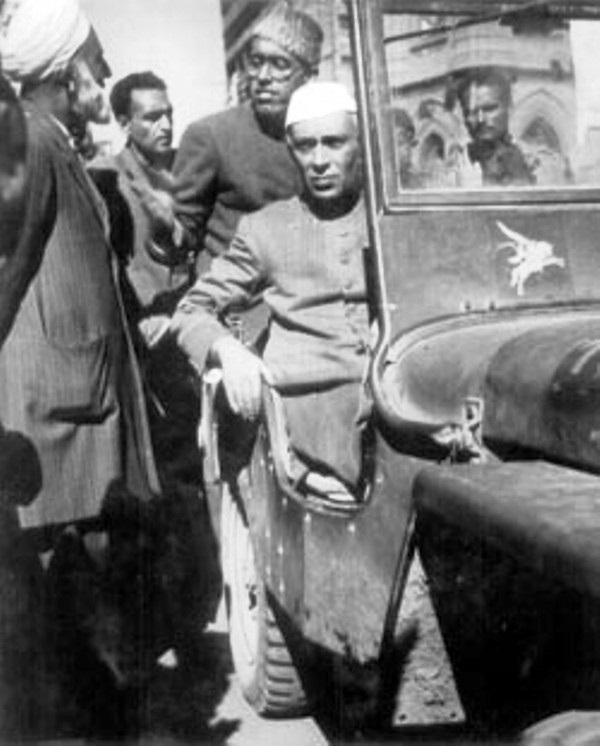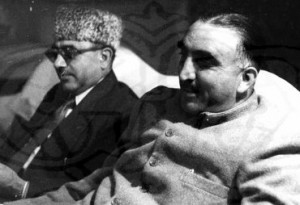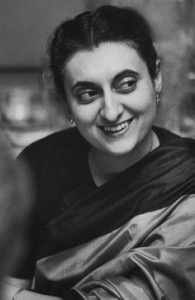Peace Watch » Editor's Take, Kashmir-Talk » Kashmir Narrative and Coalation Governments
Kashmir Narrative and Coalation Governments
2014 Elections …….. and the Coalition Politics Z.G. MUHAMMAD My premise, perhaps was faulty. I had started believing, that 2014 Assembly elections in the State will be different in as much as actors’ involved in the electoral politics are concerned. I was not alone, few other political commentators believed so. Since 2012, statements originating from certain political formations, suggested that an MUF type political front would again tumble into political arena of Kashmir to challenge hegemony of the traditional ‘power-politics’ parties’ during coming  Assembly elections. At the start of 2014, after these parties had stirred debate over relevance of UN resolutions, more particularly putting question marks on 30 March 1951 and 24 January 1957 resolutions of the Security Council regarding the Constituent Assembly, indications had become more profound.
Assembly elections. At the start of 2014, after these parties had stirred debate over relevance of UN resolutions, more particularly putting question marks on 30 March 1951 and 24 January 1957 resolutions of the Security Council regarding the Constituent Assembly, indications had become more profound.  That the assembly election scene in the state towards end of the year will not be the same. Nevertheless, it did not happen. And now with barely three months left for the elections, it seems unlikely to happen. So with only traditional power-politics parties left in the field we are back to square one. However, it would be too early to rule out possibilities of some politicians and parties fielding proxy candidates. It would be too hypothetical to say in this column, that the results of elections for the 16 Lok Sabha elections and change of guard in New Delhi worked as dampener for politicians who supposedly intended to challenge the hegemony of political parties strutting in the corridors of power. However, the truth remains that results of the Lok Sabha elections in the state and constituency wise analysis have made many to envision results of the 2014 Assembly elections. Even if only ten to fifteen percent vote in the coming elections and expected boycott calls have a sway, some analysts have concluded that the National Conference is bound to sink to level of no-redemption. I am not going to dwell on the debate if results of Parliament elections will be repeated in the Assembly elections- many times it does not happen. But what interests me is the debate thrown up by the Congress, coalition partner of the National Conference wishing for an alliance with the PDP for remaining in power in the state. The birth of coalition politics in the state has its own history and it cannot be totally delinked from the main political narrative of Jammu and Kashmir. In 1947, even before the D-day of October 27, the Congress leadership invested in Sheikh Abdullah and his National Conference for making Jammu and Kashmir part of India. The letter written by Jawaharlal Nehru on 27 September 1947, to Home
That the assembly election scene in the state towards end of the year will not be the same. Nevertheless, it did not happen. And now with barely three months left for the elections, it seems unlikely to happen. So with only traditional power-politics parties left in the field we are back to square one. However, it would be too early to rule out possibilities of some politicians and parties fielding proxy candidates. It would be too hypothetical to say in this column, that the results of elections for the 16 Lok Sabha elections and change of guard in New Delhi worked as dampener for politicians who supposedly intended to challenge the hegemony of political parties strutting in the corridors of power. However, the truth remains that results of the Lok Sabha elections in the state and constituency wise analysis have made many to envision results of the 2014 Assembly elections. Even if only ten to fifteen percent vote in the coming elections and expected boycott calls have a sway, some analysts have concluded that the National Conference is bound to sink to level of no-redemption. I am not going to dwell on the debate if results of Parliament elections will be repeated in the Assembly elections- many times it does not happen. But what interests me is the debate thrown up by the Congress, coalition partner of the National Conference wishing for an alliance with the PDP for remaining in power in the state. The birth of coalition politics in the state has its own history and it cannot be totally delinked from the main political narrative of Jammu and Kashmir. In 1947, even before the D-day of October 27, the Congress leadership invested in Sheikh Abdullah and his National Conference for making Jammu and Kashmir part of India. The letter written by Jawaharlal Nehru on 27 September 1947, to Home  Minister Sardar Patel and exchange of notes between Maharaja Hari Singh’s Deputy Prime Minister Batra and Prime Minister, Mehr Chand Mahajan with Indian leadership at New Delhi between October 24 and 27, 1947 amply testify that the Congress saw Sheikh Abdullah and not the Maharaja as its ally in the State. It got Abdullah appointed first as administrator then as Prime Minister in a big deal. The investment made in the National Conference and Sheikh Abdullah brought good political dividends to New Delhi in consolidating its hold on the state and reneging from its pledges of allowing people to decide their future. Since those times, the Congress leadership always saw to installing its loyalists in power in Jammu and Kashmir for seeing its plans of integrating the state into the Union of India executed. In 1964, it dumped Bakshi and his National conference and launched unit of the Pradesh Congress. Congress, with Sadiq at the top ‘abused the Article 370 to maximum by reducing it to a naught’. With the Pradesh Congress in majority in the State legislature, through what B.K. Nehru, Governor of State from 1981-1984, described as “farcical and totally rigged elections” the Congress leadership in New Delhi was all comfortable in the State in executing its programs and plans in the state. The concept of ‘coalition government’ was born in the State, after Sheikh Abdullah Chief backed by the Congress legislature was appointed as Chief Minister in 1975. Sheikh Abdullah contrary to expectations, instead of joining Congress preferred to revive the National Conference. So first coalition government with cabinet having its members from both the parties was inaugurated in the state. The alliance ended with the defeat of Congress in 1977 Parliament elections and Sheikh Abdullah triumph in the Assembly elections. Notwithstanding, Congress being out of power at Centre did not reconcile to remaining out office in the state. In 1980, Mrs. Gandhi returned to power and in 1982 Sheikh Abdullah died but Abdullah’s passing the Resettlement Bill’ had not gone well with New Delhi. Farooq Abdullah, was installed as Chief Minister with the blessings of Mrs. Gandhi with hope that the N.C and Congress will contest 1983 Assembly elections jointly. But, NC did it alone and won 46 seats in a house of 75. Mrs. Gandhi took it as “offence”. For this behaviour, Centre government ‘pilloried Farooq in a white paper on charge of anti-nationalism and terrorist sympathies’ and was removed from power in 1984. Three years later Farooq Abdullah returned to power with the help of alliance mantra- accepting terms and conditions of the Congress. In 1996, Farooq Abdullah, through ‘rigged’ election, with 57 seats formed government on its own. But it was his half-backed autonomy resolution that once again convinced New Delhi that given to uncertain situation in the state coalition governments are appropriate form of governments for the state. The 2002 elections threw up the PDP-Congress Coalition government and 2008 elections brought the N.C –Congress combine to power. The pattern of regional party and national level party as coalition partners is not coincidental but part of “checkmate politics” of New Delhi in the state. In keeping with New Delhi’s politics, I see 2014 elections also following the same pattern and throwing up a coalition government of regional and all India parties. And coalition of regional parties is out of question.
Minister Sardar Patel and exchange of notes between Maharaja Hari Singh’s Deputy Prime Minister Batra and Prime Minister, Mehr Chand Mahajan with Indian leadership at New Delhi between October 24 and 27, 1947 amply testify that the Congress saw Sheikh Abdullah and not the Maharaja as its ally in the State. It got Abdullah appointed first as administrator then as Prime Minister in a big deal. The investment made in the National Conference and Sheikh Abdullah brought good political dividends to New Delhi in consolidating its hold on the state and reneging from its pledges of allowing people to decide their future. Since those times, the Congress leadership always saw to installing its loyalists in power in Jammu and Kashmir for seeing its plans of integrating the state into the Union of India executed. In 1964, it dumped Bakshi and his National conference and launched unit of the Pradesh Congress. Congress, with Sadiq at the top ‘abused the Article 370 to maximum by reducing it to a naught’. With the Pradesh Congress in majority in the State legislature, through what B.K. Nehru, Governor of State from 1981-1984, described as “farcical and totally rigged elections” the Congress leadership in New Delhi was all comfortable in the State in executing its programs and plans in the state. The concept of ‘coalition government’ was born in the State, after Sheikh Abdullah Chief backed by the Congress legislature was appointed as Chief Minister in 1975. Sheikh Abdullah contrary to expectations, instead of joining Congress preferred to revive the National Conference. So first coalition government with cabinet having its members from both the parties was inaugurated in the state. The alliance ended with the defeat of Congress in 1977 Parliament elections and Sheikh Abdullah triumph in the Assembly elections. Notwithstanding, Congress being out of power at Centre did not reconcile to remaining out office in the state. In 1980, Mrs. Gandhi returned to power and in 1982 Sheikh Abdullah died but Abdullah’s passing the Resettlement Bill’ had not gone well with New Delhi. Farooq Abdullah, was installed as Chief Minister with the blessings of Mrs. Gandhi with hope that the N.C and Congress will contest 1983 Assembly elections jointly. But, NC did it alone and won 46 seats in a house of 75. Mrs. Gandhi took it as “offence”. For this behaviour, Centre government ‘pilloried Farooq in a white paper on charge of anti-nationalism and terrorist sympathies’ and was removed from power in 1984. Three years later Farooq Abdullah returned to power with the help of alliance mantra- accepting terms and conditions of the Congress. In 1996, Farooq Abdullah, through ‘rigged’ election, with 57 seats formed government on its own. But it was his half-backed autonomy resolution that once again convinced New Delhi that given to uncertain situation in the state coalition governments are appropriate form of governments for the state. The 2002 elections threw up the PDP-Congress Coalition government and 2008 elections brought the N.C –Congress combine to power. The pattern of regional party and national level party as coalition partners is not coincidental but part of “checkmate politics” of New Delhi in the state. In keeping with New Delhi’s politics, I see 2014 elections also following the same pattern and throwing up a coalition government of regional and all India parties. And coalition of regional parties is out of question.
Filed under: Editor's Take, Kashmir-Talk · Tags: 2014 Kashmir Elections







